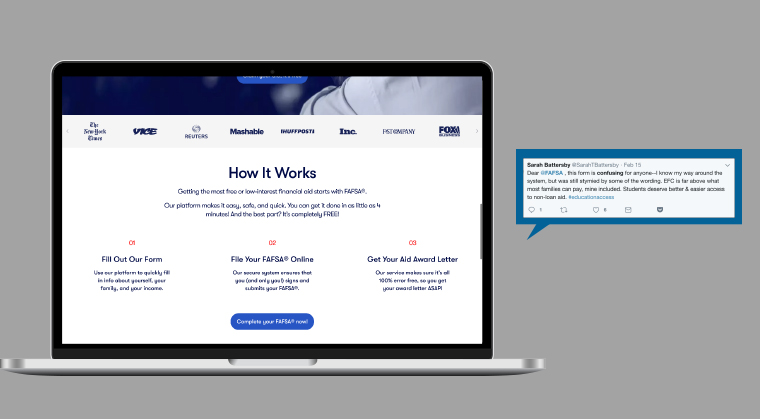The Psychology of Success
| May 1, 2019
DRIVEN TO SUCCEED - HOW TO IMPROVE YOUR FOCUS IN ALL AREAS OF LIFE
Binyamin Tepfer | PhD Clinical Psychologist | New York| Specializes in trauma, addictions, and financial performance
Having laser-focus on our goals is one of those things that we know is good for us — you want to get that assignment in early, come up with new and great ideas for your company, learn as much as you can about your industry — but it seems harder. With all the new devices we have today, we seem to have more tools than ever to help us, but in actuality, these same devices can make us even more distracted from what we’re really looking to accomplish.
If you closely study the habits of accomplished individuals across a wide range of industries, you will notice that a pattern emerges. Success leaves clues. Uncovering those footprints can help guide those who are just beginning their foray into the business world, and even those who are already well underway. So let’s begin. A standout quality of the super successful, despite distractions from within and without, is the ability to stay completely focused on a goal. While many people come up with creative ideas and products, the people who achieve results are those who stand by their vision throughout the long and often arduous process of bringing it to life. It’s one thing to have an idea; it’s another to put in the time to carry it out.
That doesn’t mean sitting on an idea is all bad, though. An important first step is letting an idea marinate, to allow it to mature and develop. Action occurs simultaneously. For example, you can have discussions with people to get their insight and research in the area you’re looking to go into. The idea shifts as it matures and morphs into something more sustainable and realistic.
Once you’re ready to move forward, however, focus drives productivity like the quiet hum of a rudder. In order to achieve such a state of fl ow, we need to 1) be working on something that gives us meaning, 2) have some level of mastery at what we are doing, and 3) be sufficiently challenged by the task. Yet, even with all that, the most important prerequisite achievement is fully engaging in the task in a way where one’s senses are engrossed to the point that all else falls away.
THE HOW-TO
All of this sounds nice in theory, but we all know it’s much easier said than done. So how do we get to that point of feeling truly focused? Practice. Focus is a mental muscle that can be exercised. Here’s how:
1. START SMALL. Research shows that making even simple changes can have big benefi ts. Start small by spending just two minutes a day paying attention to your breathing. Ignore all distractions and think about your breath as a way to guide you to a focused, meditative state. Then you can bring that mindset to your work. This next time may sound obvious, but it needs to be reiterated. Shut off your cell phone for a set block of time to make the most of the minutes you have. You’ll tackle your to-do list much faster.
2. PRIORITIZE. We’re all confronted with endless tasks on a day-to-day basis. A successful person knows how to pick and choose which ones he has to attend to at any given moment. How can we figure out what our top priorities are? Stephen Covey in his book, First Things First, divides responsibilities into four quadrants. First comes the items in our lives that are important and urgent, next are the items that are important and non-urgent, next are urgent and non-important, and last are those that are not-important and not-urgent. Covey notes that most people get caught up in the urgent moment-to-moment crises, but real growth lies in our ability to spend our time and focus in the important but non-urgent category.
If you think about it, all growth and vision is by definition going to be important but rarely urgent. For example, starting a new branch in your business usually doesn’t classify as urgent compared with answering an irate costumer, but it’s arguably just as important, if not more so, to your overall success. Growth therefore requires the discipline and reminder to pay attention to the important but non-urgent parts of our lives and businesses.
3. SAY NO. It can be tempting to agree to every little thing that comes your way, but it’s just as important to know when to decline so you can stay focused on the priorities you just made. In his book Good to Great, Jim Collins writes that one of the biggest predictors of success is having a “not-to-do” list. On this list, one should enumerate both time wasters and the good things that he can spend his time on but decides not to in order to keep his focus fi xed on the goal. For example, a person in construction may think it would be good to take on another home renovation job, but if his sights are on shifting into the commercial world, taking this job is a disservice to the greater vision he has for the long run.
4. NURTURE YOUR GOAL. It’s not enough to put the wheels into motion when building an idea; you need to constantly put fuel in the car by reminding yourself why you’re so excited about what you’re doing in the fi rst place. Focus needs outside help. How do you do this? Here are some examples: a) Envision and think about your goal at a dedicated time every day, b) create a picture board of what the goal looks like to glance at when you’re frustrated or distracted, and c) speak about it regularly. Focus can be a lot of work, but making sure to nurture that purpose will give you the strength to keep on moving. If you want to see success in your business — or in any area of life — staying focused is the key. Learn how to reduce distractions, prioritize your tasks, say no when necessary, and remind yourself regularly of your goal: you’re on the way.
MANAGE
Crises & Pressing Problems
DEMAND + NECESSITY
DAILY FIRE-FIGHTING
BE QUICK TO DELEGATE
IMPORTANT AND URGENT
FOCUS
On Strategies & Values
OPPORTUNITY + PLANNING
KEEP CRITICAL THINKING
CONSIDER THE MACRO
IMPORTANT NOT URGENT
LIMIT
The Trivial & Wasteful
ESCAPE + WASTE
ENTERTAINMENT ONLY USED TO MINIMIZE STRESS
NOT IMPORTANT OR URGENT
AVOID
Interruptions & Busy Work
ILLUSION + DECEPTION
NOT YOUR EMERGENCY
MINIMIZE INVESTMENT
URGENT NOT IMPORTANT
(Originally featured in 2.0 Issue 3)
Oops! We could not locate your form.












